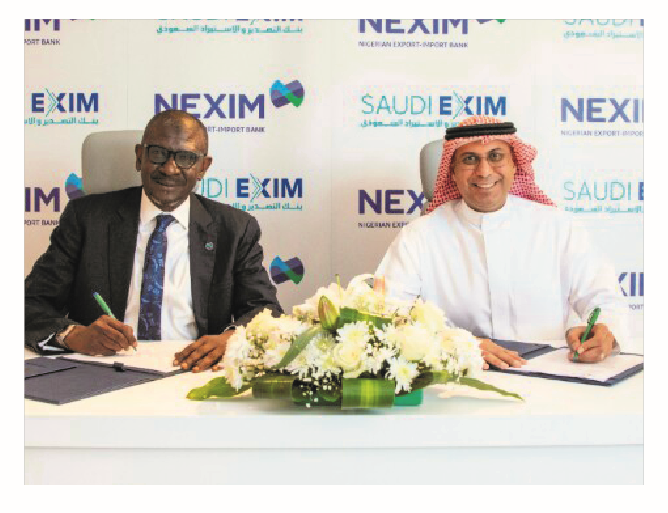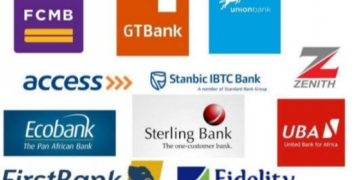Nigeria’s annual Gross Domestic Product (GDP) growth rate slowed to 3.10 per cent in 2022, compared to 3.40 per cent in 2021, the National Bureau of Statistics (NBS) disclosed recently. However, the economy grew by 3.52 per cent (year-on-year) in real terms in the fourth quarter of 2022 (Q4 2022), compared to 2.25 per cent in the preceding quarter.
According to the GDP report for Q4 2022, aggregate GDP stood at N56.76 trillion compared to N49.28 trillion in Q4 2021, indicating a year-on-year nominal growth of 15.18 per cent. Interestingly, the economy was largely driven by the non-oil sector which accounted for 95.66 percent of growth while the oil sector contributed 4.34 per cent.
This underscores the importance of the non-oil sector to Nigeria’s economic growth.
As an intervention and in line with its drive to further boost Nigeria’s non-oil exports, a delegation from the Nigerian Export-Import Bank (NEXIM) led by the managing director/chief executive, Mr. Abba Bello; executive director corporate services, Bala Bello, and other staff recently undertook a working visit/strategic engagement with some International Development Finance Institutions, which included the Islamic Development Bank (ISDB) and the Saudi Export-Import Bank.
The purpose of the visit which took place last month was to engage in various bilateral meetings and other activities towards attracting development funds into the Nigerian non-oil export sector, promote capacity building and information exchange, as well as engage in necessary partnerships towards developing new products, particularly non-interest banking products to fill the yearning gap in the Nigerian financial system.
Significant milestones during the visit included signing a memorandum of partnership with the Saudi Export–Import Bank. Key aspects of the partnership were to collaborate in co-financing, club deals, syndication projects, and provision of Buyer’s Credit facilities to Nigerian institutions to purchase the goods and services and financing for project development tied to Saudi Exports.
With the new partnership, the two institutions seek to cooperate in providing financing, investment and other services to promote trade between the two countries. The institutions also seek to explore the possibility of knowledge sharing, staff training and capacity building initiatives.
The agreement was executed by the CEO of Saudi EXIM, Saad Alkhalib and Mr Bello, who signed on behalf of their respective institutions.
Specifically, the parties agreed to collaborate in the areas of co-financing, club deals and syndication projects. The Saudi Exim also agreed to provide Buyer’s Credit facilities to Nigerian institutions for the purchases of Saudi goods and services and or financing for project development tied to Saudi exports.
The NEXIM team also paid working visit to the Vice President of the ISDB, Dr. Mansur Muhtar, who was represented by the director-general, vice President’s office, Anasse Alsami.
Discussions during the meeting focused on promoting African Arab trade, mutual sharing of information, capacity building, and the ISDB Reverse Linkage Policy. The parties also discussed how Nigeria could benefit from ISDB’s programs, such as the “She Trade” and “Women Tech Stars” programs.
The Bank also held technical meetings with various institutions under the ISDB Group. This included the Islamic Solidarity Fund (ISFD) to discuss modalities on how the Bank and Nigeria can benefit from the ISDB Guarantee Facility Fund and Capacity Building Programmes.
The senior advisor to the Director General of ISFD, Khamais EL Gazzah, and his team represented the institution.
The Bank also met with the chief operating officer of the International Trade Finance Corporation (ITFC), who also doubles as the acting MD of International Cooperation for the Development of the Private Sector (ICD) Nazeem Nordali, and other officials from both the ITFC and ICD.
During the meeting, the bank discussed progress on the $ 200 million ISDB line of financing for Nigeria through NEXIM. Other discussion areas included opportunities for collaboration towards securing funding for port infrastructure in furtherance of the NEXIM Sealink project.
NEXIM also had an engagement with Global Partnership & Practices (GPP) officials, represented by the Director of Resilience & Climate Action, Syed Hussain Quadri, and Nabil Ghalleb, Director, Economic Empowerment.
During the meeting, the Bank called for a partnership to promote SMEs in Nigeria. The GPP agreed to support Nigerian entrepreneurs through some of its initiatives such as “Business Resilience Assistance for Value-Adding Enterprises for Women (BRAVE),” “She Trade Programme,” which supports women in trade, “Women Tech Stars,” which supports women in technology.
In his remarks, the NEXIM MD said the working visit to Saudi Arabia promises to provide many benefits for the Nigerian economy and the non-oil export sector.
“Besides the $ 200 million Line of Credit, which is already being processed, the Bank hopes to secure additional credit lines and leverage the guarantee fund of the Islamic Development Bank. We also have the opportunity for capacity building, particularly in developing Islamic banking products, which will provide financial inclusion for some of our exporters, who hitherto, have not benefited from our regular banking products,” Abba Bello said.




